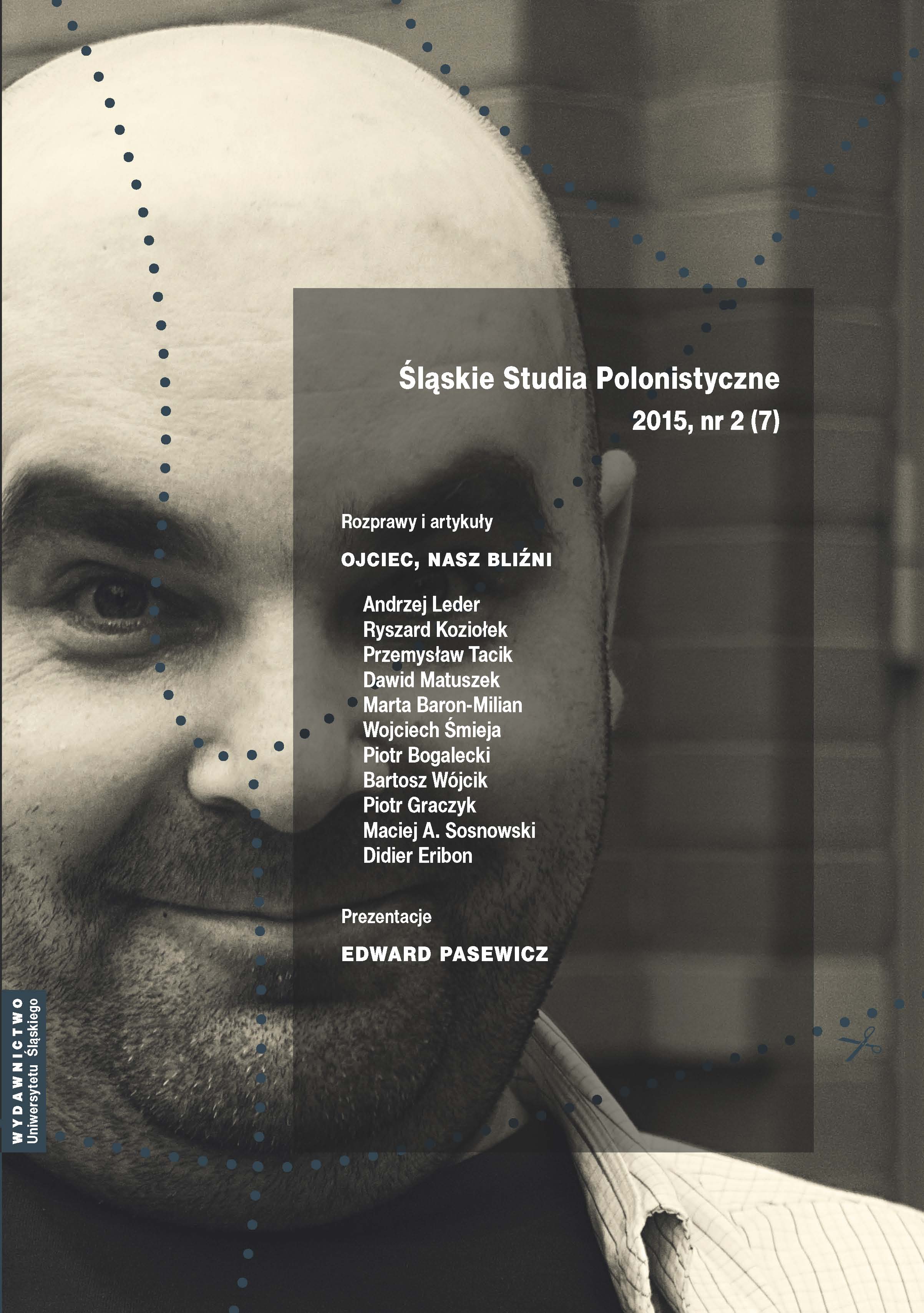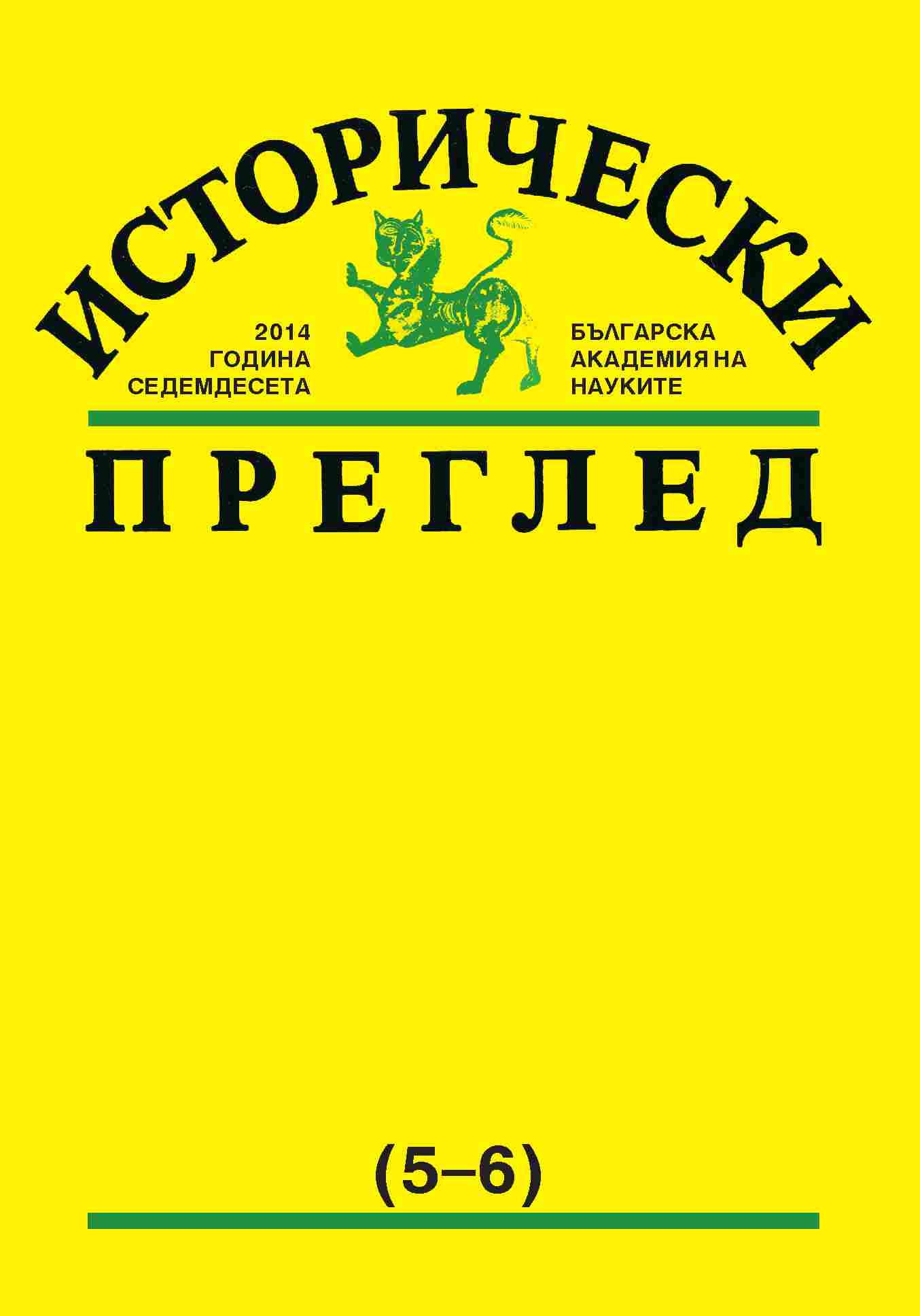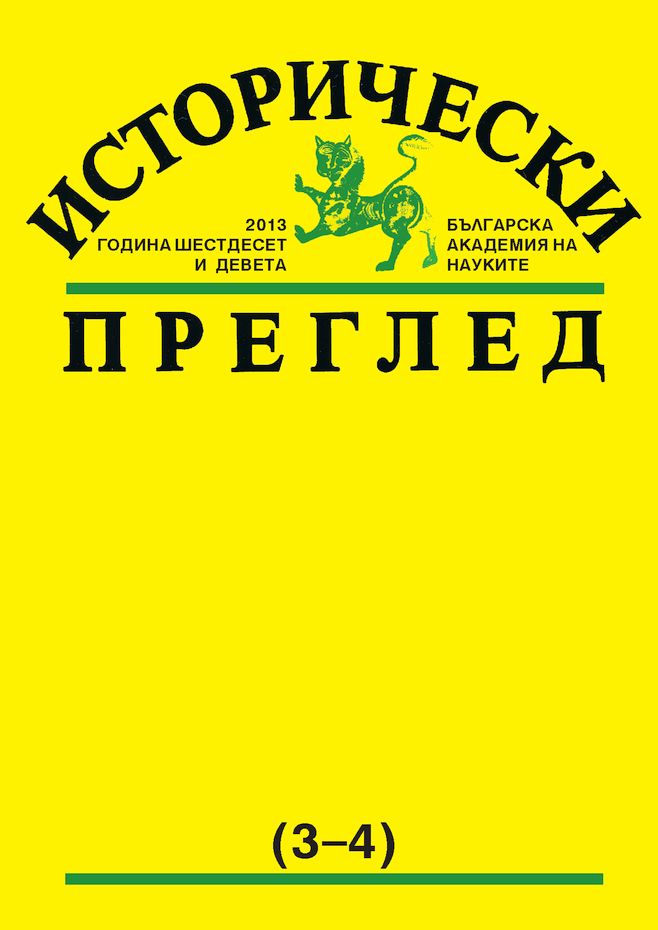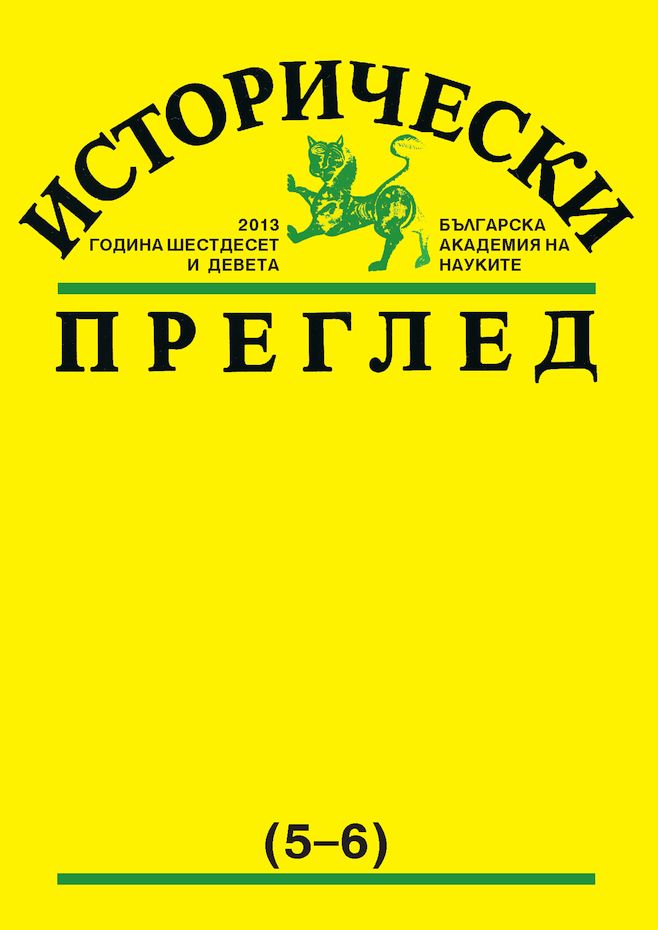
We kindly inform you that, as long as the subject affiliation of our 300.000+ articles is in progress, you might get unsufficient or no results on your third level or second level search. In this case, please broaden your search criteria.












The involvement of the intellectual in the real policy questions their ability to be and to act as an intellectual. At the same time as a corrective to the real political, although trumpeted as a value-moral, the intellectual is in the political. Iliya Beshkov is а typical representative of counter-adaptive intellectuals in the period 1944–1945. His cartoons, published in the FF press and especially in “Agricultural flag” and“Policy” (newspapers of the BZNS) are essential historical source for the political tensions between the different parties in those years. It is in this article that three of the cartoons of Iliya Beshkov from 1945 are published and commented for the first time. They reflect a key point in the summer of the same year – “opening” of the multiparty system through official listing of opposition parties.
More...
In the decade after the establishment of the first Palestinian quasi-state entity – Palestine Liberation Organization (PLO) Bulgarian diplomacy significantly but not radically changed its positions on the Palestinian issue. In the early 1970s Sofia carried out official contacts with the organization due to increased authority of the organization and personally of its leader Yasser Arafat in the Palestinian resistance movement and in the Middle East as a whole. Expanding the relationship should be seen as an attempt to balance the loss of Egypt for the anti-Western Middle Eastern front and as a decision coordinated with the local Communist parties. In the context of the changed Soviet position, the PRB recognized the identity of the Palestinian Arab people in the early 1970s, which was a tactical move, taken in the context of the global confrontation and “under the pressure of circumstances” and not a manifestation of a principled position, as decade previously there was no such recognition from the Soviet bloc. The decision, combined with the subsequent expanding dialogue with PLO made Bulgarian diplomacy take the official decision to stand for the sovereign rights of this people of its own state. Moving was slow and cautious because the destruction of convenient Middle East standstill did not guarantee the achievement of the objectives of the Soviet bloc in the region.
More...





